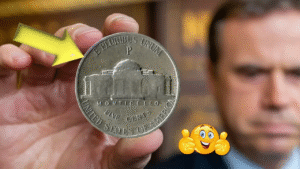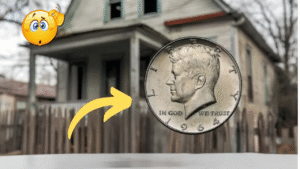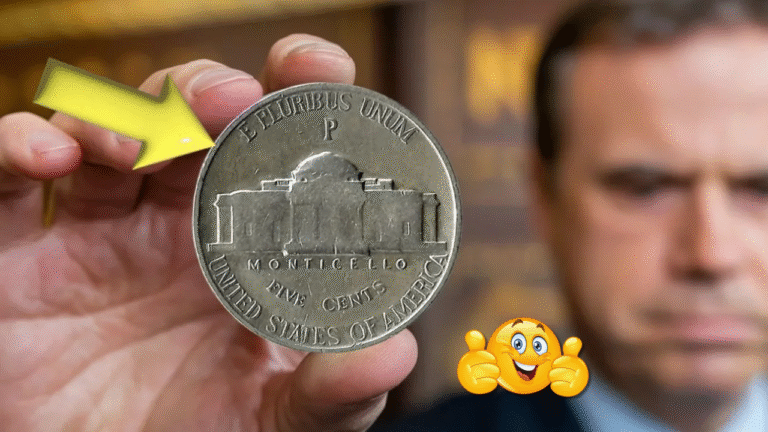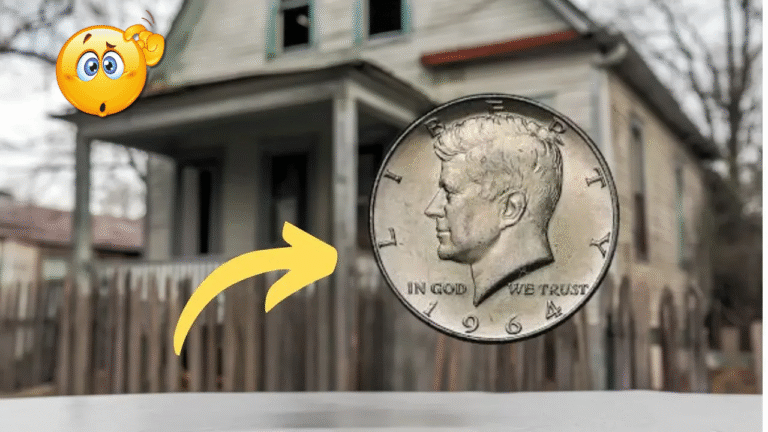Most people wouldn’t give a second thought to a penny. But what if one of those tiny coins in your change jar could be worth over ₹36 crore ($4.4 million)? That’s the case with the 1943 Lincoln Wheat Penny made from copper—a rare minting error that has become a collector’s dream. Even more intriguing? Experts believe a few may still be in circulation, quietly hiding in jars, drawers, or even your wallet.
What Makes the 1943 Copper Penny So Rare?
In 1943, the United States Mint made a critical decision: switch from copper to steel for penny production. This change was due to World War II, as copper was needed for ammunition and military equipment.
However, a few copper planchets (coin blanks) were accidentally used during the switch, leading to a limited number of 1943 copper Lincoln Wheat Pennies. It’s estimated that only 15 to 20 of these coins exist today.
These rare coins are worth millions because:
| Feature | Reason for Value |
|---|---|
| Year | 1943 – during wartime metal shift |
| Material | Mistakenly minted in copper |
| Mintage error | Extremely low survival rate |
| Collector demand | High among numismatists |
| Condition & Authenticity | Can drive value up to $4.4 million |
How to Identify a 1943 Copper Penny
You might be wondering—how can I tell if I have one of these coins? It’s actually pretty simple to start:
- Color: Copper coins have a reddish-brown hue, unlike steel which looks gray or silver.
- Magnet test: Steel pennies stick to a magnet. A 1943 copper penny will not.
- Check the date: If the coin says “1943” and doesn’t stick to a magnet, you may have a winner.
- Weight test: Steel pennies weigh 2.7 grams, copper ones weigh around 3.11 grams.
But the only way to be sure? Have it authenticated by a professional coin grading service like PCGS (Professional Coin Grading Service) or NGC (Numismatic Guaranty Company).
What to Do If You Think You Have One
If you’ve found a potential 1943 copper penny, here’s what to do:
- Don’t clean it – Cleaning a coin can destroy its collector value.
- Test it with a magnet – If it sticks, it’s steel. If not, you may have something rare.
- Get it appraised – Contact a reputable coin dealer or grading service.
- Submit for grading – Only certified coins will fetch high value at auction.
- Explore selling options – Rare coins are best sold through auctions or private collectors.
Can You Still Find One in Circulation?
Surprisingly, yes. These coins were not pulled from circulation, and due to their appearance, they can easily be mistaken for common pennies. People have found them in old piggy banks, inherited collections, or loose change.
Keep in mind that most 1943 pennies are steel and are only worth a few cents to a few dollars, even in good condition. But if you find a 1943 penny that doesn’t stick to a magnet—get it checked.
Other Coins That Have Sold for Millions
The 1943 copper penny isn’t alone in the world of rare, high-value coins. Here are a few more highlights from 2024’s top coin sales:
| Coin Name | Year | Sale Price |
|---|---|---|
| 1794 Flowing Hair Silver Dollar | 1794 | $10 million |
| 1933 Double Eagle | 1933 | $18.9 million |
| 1913 Liberty Head Nickel | 1913 | $4.56 million |
| 1943 Copper Wheat Penny | 1943 | $4.4 million |
Rare coins like the 1943 copper Lincoln Wheat Penny remind us that hidden treasures might be closer than we think. Whether it’s tucked away in a forgotten drawer or mixed in with pocket change, the possibility of discovering a multimillion-dollar coin is real. Keep your eyes open, and check those pennies before you spend them—you just might strike gold.
FAQs
How many 1943 copper pennies exist?
Only about 15 to 20 authentic 1943 copper pennies are known to exist.
How can I test if my 1943 penny is valuable?
Use a magnet. If the penny doesn’t stick, it may be copper and worth investigating further.
Where can I get my coin authenticated?
Use professional services like PCGS or NGC, or consult a reputable local coin dealer.
Can I clean my old coin before selling it?
No—cleaning can reduce the coin’s value significantly.







